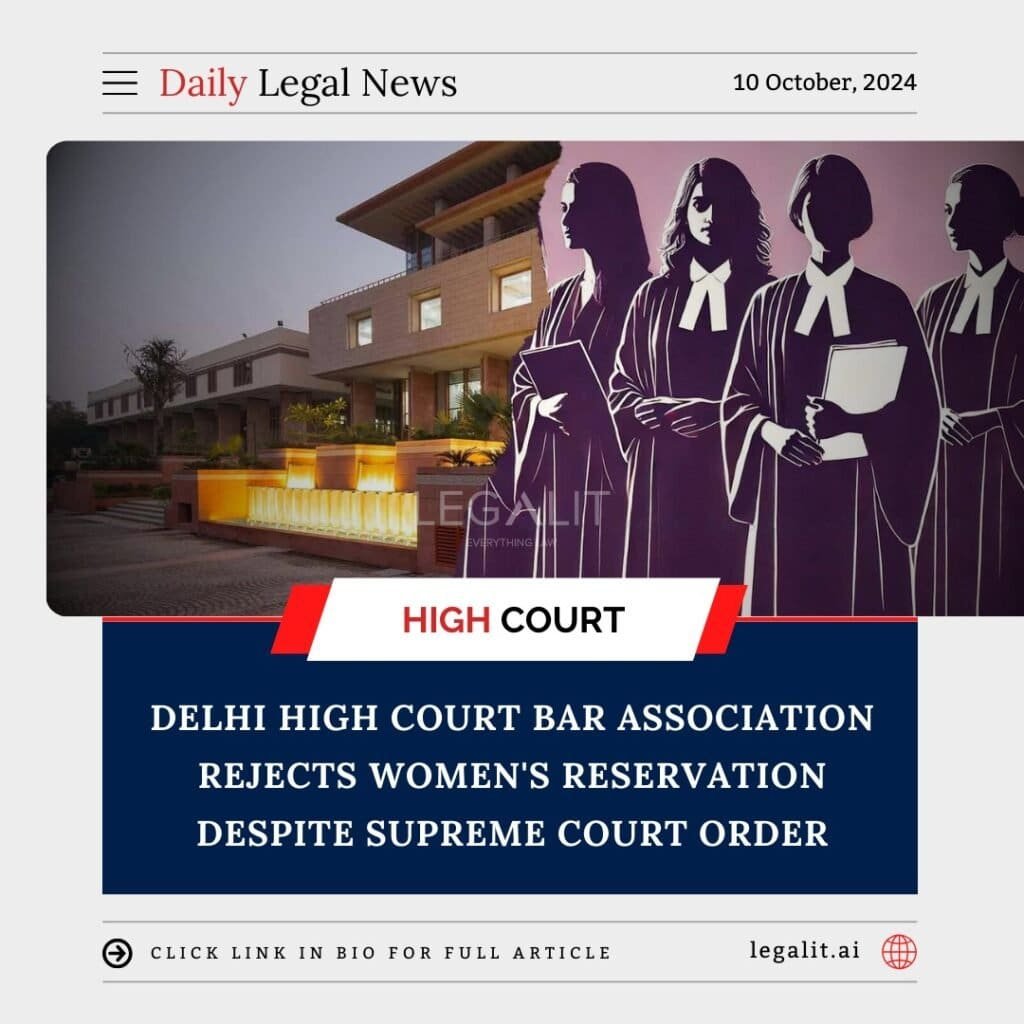
Background of the Issue
The Delhi High Court Bar Association (DHCBA) recently made headlines by rejecting a proposal for reserving seats for women lawyers in its governing body, despite a previous Supreme Court order advocating for such a move. The Supreme Court has been a vocal proponent of increasing women’s representation in various professional bodies, including the judiciary and bar associations. Its order was seen as a step toward ensuring gender equality in legal professions, a field often criticized for its gender disparity.
The DHCBA, however, opposed the reservation plan, sparking debates over gender bias and systemic inequalities in the legal profession. The association cited various reasons for its rejection, raising questions about how deep-rooted resistance to reform is in traditionally male-dominated professions.
Court’s Ruling and Reasoning
In its previous rulings, the Supreme Court emphasized that gender inclusivity and equality in the legal profession were essential to ensure fair representation. The Court highlighted the structural barriers that women face in law, which often prevent them from rising to leadership roles. Its order calling for reservations was seen as a way to correct historical injustices and encourage more participation from women.
However, despite the court’s clear stance, the DHCBA’s rejection reflects reluctance among some sections of the legal community to embrace such changes.
Implications of the Decision
The DHCBA’s refusal to adopt gender-based reservations has larger implications for the representation of women in legal bodies. The absence of female voices in leadership positions perpetuates an environment that is less conducive to addressing gender-specific challenges, such as sexual harassment, pay gaps, and the struggle for professional advancement. Without proactive measures like reservation, the legal field may continue to lag in achieving gender parity.
This resistance also brings into focus the broader societal challenges faced by women in other male-dominated professions. If legal bodies, which are meant to uphold justice and equality, resist gender reforms, it raises concerns about the pace of gender-based reforms across other sectors.
Need for Reforms
This controversy highlights the need for not only policy changes but also cultural shifts within the legal community. While reservations might seem like an immediate fix, lasting change requires addressing the underlying biases that have kept women from rising to leadership roles in law. Bar associations, law firms, and judicial bodies need to actively promote gender sensitization, mentorship for women lawyers, and ensure a more welcoming and inclusive environment.
Conclusion
The DHCBA’s rejection of reservations for women lawyers underscores the persistent challenges in addressing gender disparities in the legal field. While the Supreme Court has been pushing for change, the resistance from within the profession indicates a long road ahead for achieving gender equality. The situation calls for more robust legal reforms and cultural shifts to break down the barriers that prevent women from advancing in their legal careers.